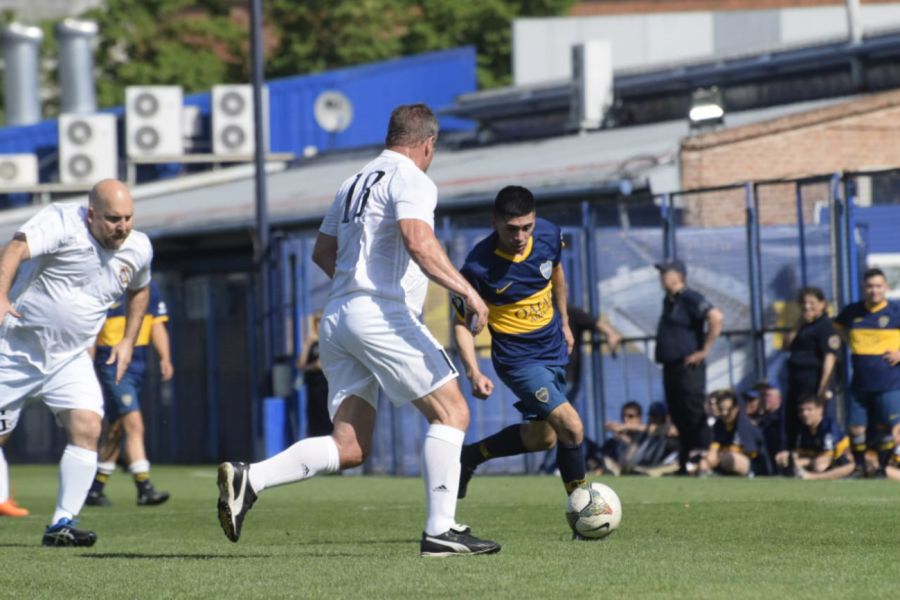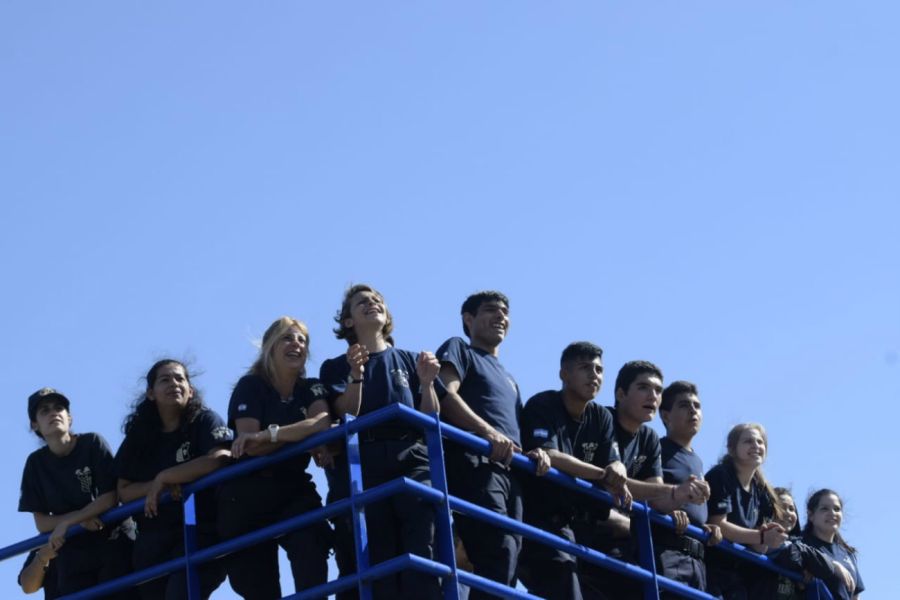It’s a clear day in La Boca, the kind made for soccer — blue skies, a light breeze and the smell of freshly cut grass.
In the shadows of La Bombonera, one of Argentina’s most iconic football stadiums, the team strides out of the practice facility locker rooms. Each player is clad in the signature colours of Boca Juniors — blue and yellow. They step on the manicured field, painted with stark white boundary lines, perfectly level. Some shout, some jump, some quietly tilt their heads down, contemplating how the next 90 minutes of play will look.
The unknowing bystander might think this is a scrimmage before Sunday’s game. But, look closer, and that theory unravels. Some players are wearing sneakers rather than cleats, there are only a few water jugs on the sideline and, perhaps more interestingly, women are playing, too.
These are members of the Bomberos Voluntarios de La Boca, the famous neighbourhood’s volunteer firefighter squad and the oldest of its kind in Argentina.
On Saturday November 2, the team welcomed a squadron of firefighters from the Fire Department of New York (FDNY) to Buenos Aires for a friendly football match. The event was part of a larger weekend plan to honour Sergio Villanueva, an Argentine who died during rescue efforts after the tragedy of September 11, 2001 in New York City, and to create collegiality between firefighters across the world.
“This is a way to keep alive and preserve the values of Sergio that still continue to exist through our work,” said Luis Martínez, 40, and a member of Boca’s volunteer squad.

Villanueva was born in Bahía Blanca, a city in the southwest of Buenos Aires province, but his family moved to New York when he was a little over one-year-old. He served as a policeman and detective, where he specialized in the anti-narcotics division, before becoming a firefighter.
Boca’s squad was comprised of roughly 15 men and women, all of whom take regular shifts at the firehouse and hail from the surrounding neighbourhoods. Though almost all are diehard fans of the Boca club, only a few play the sport themselves.
“We don’t have much physical activity in the firehouse because a lot of us are working our full-time jobs and then coming here, so we just don’t have much extra time,” said Carla Aguilar, 30, a volunteer firefighter and a player in Saturday’s game.
But for Aguilar and the small handful who do play the sport with some regularity — like one one man endearingly called flaco [“skinny”] — Saturday was especially spectacular.
“I’ve played my whole life because I grew up in a smaller town and that’s what you do when you’re a kid,” she said. “I even wanted to try out for the new professional women’s team in La Boca, but it’s just too hard with my schedule.”

New York’s team sported pearly white uniforms and displayed a finely tuned warm-up routine. And though it was the ultimate victor to the tune of four to one, the practiced, structured style of play initially faltered against the gritty, scrappy alternative of Boca, a soccer of the Argentine streets that few on New York’s team could ever know.
“There’s no better way to break your body than getting on the field after two days of drinking Malbec and eating steak,” one player shouted, laughing from mid-field as he warmed up.
Villanueva’s mother, who travelled with the FDNY cadre, told the teams she felt a connection to her late son.
“I feel great contentedness to be able to honour the dream of Sergio in this way. It’s like touching my hands to the sky,” she said. “Today, without a doubt, we are a little closer to him”
After the match, the teams celebrated together at an asado in the firehouse. The next day, Villanueva was honoured before the start of Boca Junior’s game.



















Comments